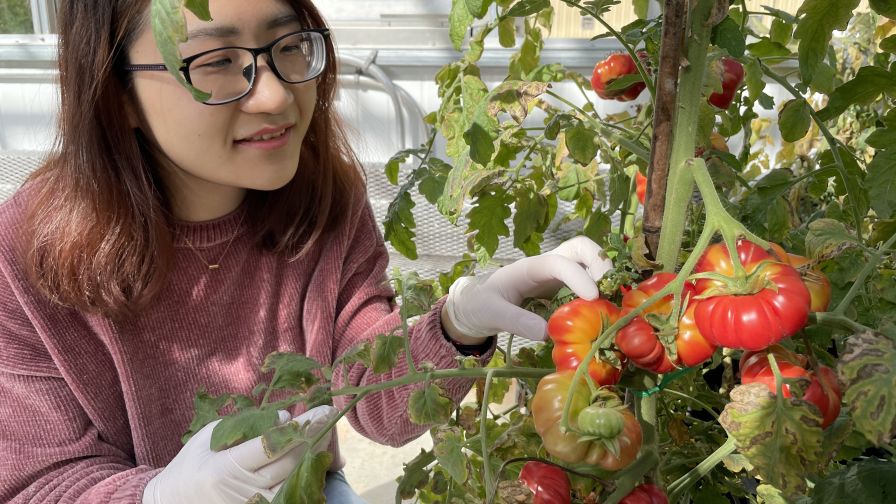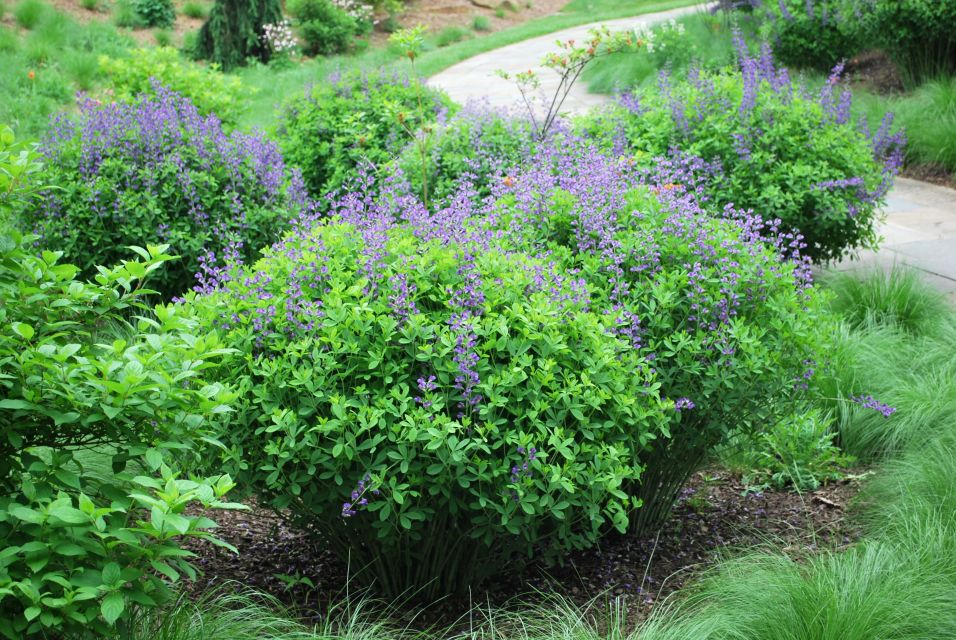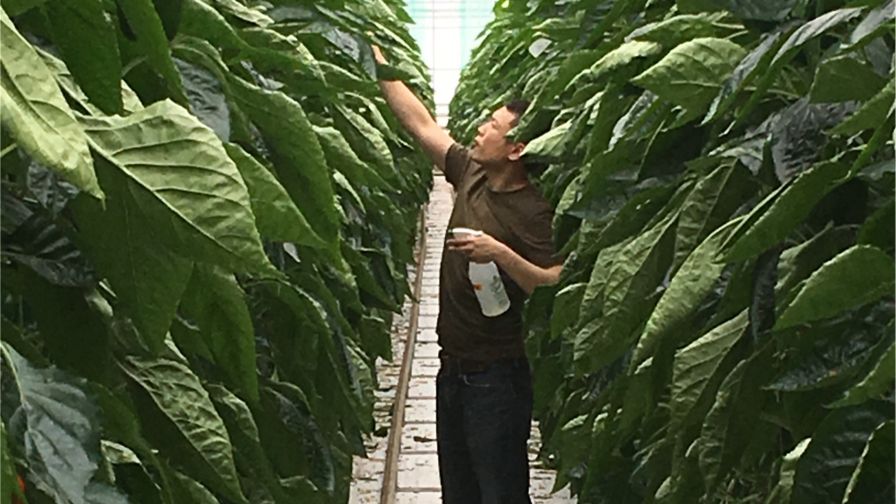Research Aims to Bring the Flavor Back to the Tomato

Qian Feng, a second-year doctoral candidate in the UGA College of Agricultural and Environmental Sciences, has mapped additional genes responsible for volatile production in order to offer a more complete picture of the biochemical pathways in tomatoes. She hopes that other researchers can introduce the desirable genes into current or new varieties to breed a tastier tomato. Photo: University of Georgia
Any grower or tomato lover will tell you that the key to a high-quality fruit is flavor. Qian Feng, a second-year University of Georgia (UGA) College of Agricultural and Environmental Sciences doctoral candidate, is digging deeper into tomato flavor attributes.
Feng, a member of Professor Esther van der Knaap’s plant biology lab in the UGA Institute of Plant Breeding, Genetics and Genomics, grew up in China, the world’s top producer of tomatoes. Many traditional Chinese dishes include tomatoes as a main ingredient, but Feng recognized a confusing trend.
“More often than not, my family had to add lots of extra condiments to bring the right tomato flavor out,” Feng explained.
Dissatisfied with the bland flavor profile, Feng began investigating the evolutionary history of the tomato in order to uncover any traits that could explain the loss in taste. She found that through selective breeding to increase the size and outer protective shell — in addition to breeding disease-resistant varieties of tomatoes — farmers and producers created a less intense tasting and less nutritious tomato.
The key to measuring and increasing the taste of a tomato lies in its chemistry, more specifically the amount and type of chemicals, or volatiles, that are present.
“To link different volatiles to actual consumer preference, we cannot rely simply on the measured value. We need to have a taste panel so that the human perception of flavor can be taken into account,” Feng says.
Using research from Denise Tieman and Harry Klee at the University of Florida, who have spent years collecting volatile data along with taste panel evaluations from more than 100 tomato varieties, Feng was able to map additional genes responsible for volatile production in order to offer a more complete picture of the biochemical pathways in tomatoes.
Although further research in the van der Knaap lab will not focus on selective breeding to increase the amount of identified volatiles in tomatoes, Feng hopes that her results can be used by other breeding labs and facilities to introduce the desirable genes into current or new tomato varieties.
Learn more here.









